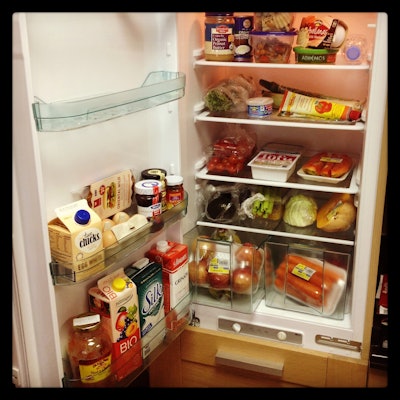
In Sweden, groceries and fresh food can be delivered in your absence and directly to where they belong: your kitchen and fridge. A Scandinavian courier company, PostNord AB, and supermarket chain, ICA AB, are testing a service to deliver groceries directly to the kitchen with about 20 households, promising that messengers will remove their shoes and unpack online deliveries, even when customers are away, according to The Wall Street Journal.
The pioneering service hinges on a new add-on lock, which customers must install on their doors and which messengers can open with their smartphones. Made by Swedish startup Glue AB, the lock allows residents to decide remotely when to allow access to their homes.
The Swedish experiment is part of a global race aimed at solving one of the main headaches facing retailers and logistics companies from Amazon.com Inc. to United Parcel Service Inc.: elusive customers. Without having to juggle the conflicting schedules of customers reluctant to sit at home, PostNord says it can organize more efficient delivery rounds and cut costs.
To read more, click here.
Editor's Insight: This concept will strike many as hard to fathom, especially in the U.S., where homeowners are more protective of their personal property than in other countries. Nevertheless, a researcher at the Massachusetts Institute of Technology’s Megacity Logistics Lab gives the concept a thumbs up because it eliminates failed deliveries, a problem that has undermined grocery home delivery.
Failed deliveries cost United Kingdom’s e-commerce industry $1.13 billion in 2014. As for store pickups, the alternative to home delivery, a recent U.S. survey found that half the consumers who opted for store pickup of online orders encountered problems.
Another news story in today’s newsletter offers suggestions for food delivery services in light of Uber’s recent decision to end its instant food delivery service, which indicates the extent of challenge in fulfilling online food orders. 5-31-16 By Elliot Maras



















